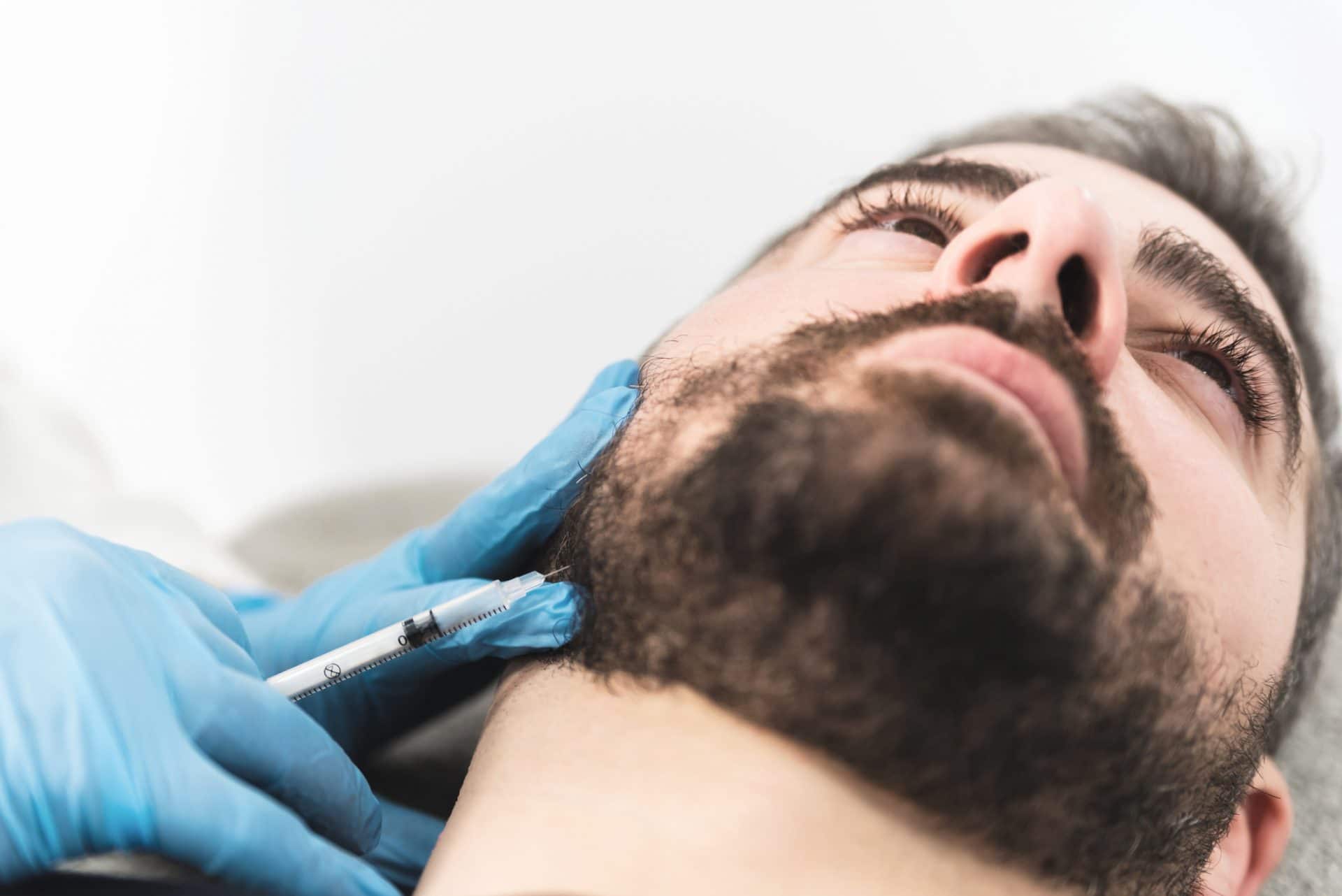The temporomandibular joint (TMJ) is a joint located on each side of your head, where the jawbone meets the skull. This joint is responsible for chewing, yawning and talking. So, it can be incredibly frustrating when any problems arise with the TMJ. TMJ dysfunction is often referred to as temporomandibular joint dysfunction (TMD).

TMD can be caused by a variety of things, the most common being bruxism or teeth grinding, heavy blows to the jaw, arthritis in the TMJ, teeth clenching or articular disc disruption. It is usually noticeable if you begin suffering severe tension headaches in conjunction with sharp jaw pain.
TMD can be an especially frustrating condition. This is because the TMJ is such an integral joint in many of your necessary daily activities. It is used in eating and talking. Luckily, recent studies have shown that Botox can be a useful treatment to help relieve TMJ pain.
How Do Facial Injectables Help With TMD?
Facial injectables are more typically thought of as a method for fighting wrinkles and removing the effects of ageing, but they are also increasingly used to relieve pain and help people feel better.
Facial injectables can be used to ease pain through temporarily weakening muscles by blocking nerves. In doing this, any hyperactivity a person may have with their jaw and the TMJ is reduced, meaning it doesn’t become overworked which is typically the main cause of TMD. The goal of using facial injectables to treat muscle pain is to ultimately weaken the muscle.
What Does the Treatment Involve?
Using facial injectables to treat TMD is a non-surgical procedure that we can administer at our Camberwell dental clinic. It usually only takes between 10-30 minutes, and typically consists of approximately three sessions of injections over several months’ time.
It is a fairly simple procedure and usually involves having facial injectables in your forehead, temple and jaw muscles. The facial injectables may also be administered to other areas, depending on the symptoms you show.
The discomfort experienced during the treatment is very minimal and instantaneous. It is often described as being similar to a small prick or a bug bite. This can usually be helped with ice or numbing cream.
Some have said that they have felt relief from muscle pain after just a day or two. However, for most, it usually takes a number or days to feel any substantial pain relief. Subsequent administering of facial injectables to help with TMD will then help to maintain normal functioning of the TMJ in your day to day life.
What To Expect After The Treatment?
One of the biggest benefits of this procedure is that patients can expect to return to their normal day to day activities immediately after leaving our clinic. This is because it is a non-invasive and non-surgical procedure. Although it may take a few days to begin feeling the full effects of pain relief, it is relatively immediate compared to other treatments for TMD.
Teeth grinding or jaw clenching is often a learned response in many people. This means that these are habits picked up subconsciously. The great thing about using facial injectables to block hyperactivity in these muscles is that it can also work to reset the muscle, meaning these habits can ultimately be erased completely and cease to exist in the future.
It is important that patients take measures to avoid spreading the toxin to other muscles after the procedure. To ensure this doesn’t happen, it is important that you avoid rubbing areas that were injected. You should also remain in an upright position for several hours after the procedure. We also typically recommend limiting physical activity immediately afterwards.
Limitations and Possible Side Effects
There have been numerous professional studies conducted that have shown what a significant difference using facial injectables to treat TMD and TMJ discomfort can make. Like any procedures though, it does have some limitations and possible side effects.
The most common side-effects that may occur after the administering of facial injectables as part of any procedure are headaches, flu symptoms, nausea and the temporary drooping of eyelids. There are also several less common side effects like redness, pain and bruising. Facial injectables should also be avoided during pregnancy and in the months afterwards as well. Luckily, these side-effects are often short-lived.
If you are interested in receiving facial injectables to help with TMJ pain or TMD, book an appointment at Care Dental Camberwell today. Or, if you want to learn more before signing up for the procedure, feel free to give us a call on 03 9882 6938 or visit us at our clinic at 257 Camberwell Road, Camberwell.

